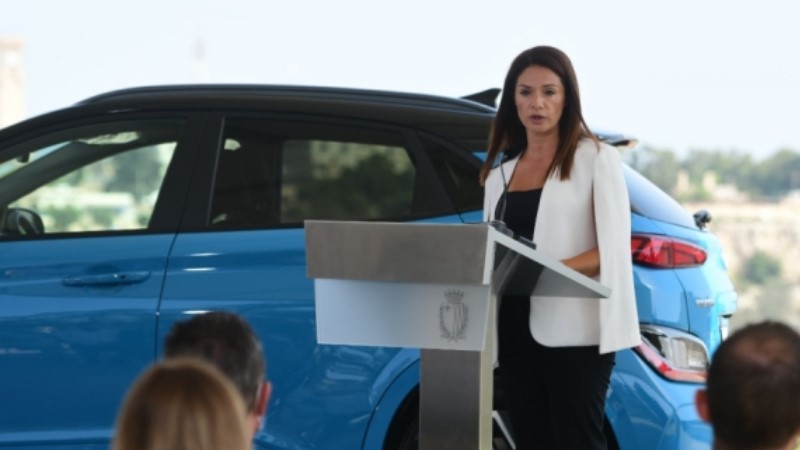If there were ever a need to show how the government’s so-called decarbonisation strategy is in total shambles, Miriam Dalli’s energy and environment ministry would be the place to look.
Just a few months ago, Minister Dalli published Malta’s first decarbonisation strategy in which the government is aiming to achieve a zero carbon footprint by 2050 – primarily by replacing its fleet of vehicles with electric cars.
In more of the by-now expected public relations stunts, Dalli began using a chauffeur-driven electric car as her official ministerial vehicle and formed a Cleaner Vehicles Commission to promote the use of electric cars.
Championing the emissions reduction strategy for political mileage in her campaign in the lead-up to the general elections, Dalli gave several interviews promoting the use of electric cars by insisting that only they – as opposed to their hybrid competitors – should be incentivised by the government.
While Dalli’s efforts were commended by pro-environmental groups, her government did little in practice. Thousands of fuel-guzzling vehicles, many of them old and second-hand, are still being imported monthly – further increasing the country’s already high transport-related pollution levels.
The most striking evidence of the strategy’s dysfunction is from Dalli’s ministry, according to newly-published data.
Last June – just a few days after Dalli’s inauguration of the Clean Vehicles Commission – the Environment and Resources Authority, for which she is also responsible, issued a direct order to lease 20 cars.
But as opposed to following the minister’s lead and setting an example by leasing electric cars, the environment authority instead opted for a new fleet of petrol and diesel engine cars.
For the first four months of the lease, ERA paid John’s Garage of Hamrun almost €30,000, and it is not yet known if the contract has been renewed through another direct order.
The approach is symptomatic of that of most of the government, which, despite the hype about its low emissions agenda, most public procurement has been and still is focused on petrol and diesel engine vehicles.













And now comes “Project Green”, proposing new enormous car parks, major excavations for subway car lanes, for gardens mainly built in concrete. Infrastructure Malta version 2. Ian Borg the Second.
Is-Sur Ellul, il-habib bahbuh tal-Ministru Dalli u li se jkun qed itellaq it-tellieqa ghal MEP fuq il-karru taghha tghidx kemm ftahar fil-bidu tal-gimgha bi progett li se jitfa l-karozzi taht l-art – flok li jnaqqashom – biex jaghmlu taparsi green space go nofs san gwann. Imbaghad fl-istess nifs qed jeqirdu Kemmuna biex jattiraw 4 Russi li jhallsu l-miljuni. Politika tal-kontradizzjonijiet u tal-qerq biex taparsi ekonomija nadifa tazza.
I bet that Malta will be one of the last nations in the EU and the western world to make a leap forward towards the introduction of electric vehicles for two simple reasons: 1. These cars are so expensive to buy that many Maltese will never succeed to get one, let alone to get two; 2. Affordability apart, the creation of an infrastructure to provide energy needed to charge an ever growing family of electric vehicles will never be enough.
Actually the cars are getting cheaper and cheaper and as Malta is so small one doesn’t need big batteries if one can charge at home overnight or top up at work. As the cars don’t use any energy whilst stuck in a jam they are ideal for Malta. Any and all new carparks should be obliged to provide charging points.
That is the whole point, ‘if one can charge at home’, as the vast majority of car owners cannot.
Electric charging ports are as common as a parking spot.